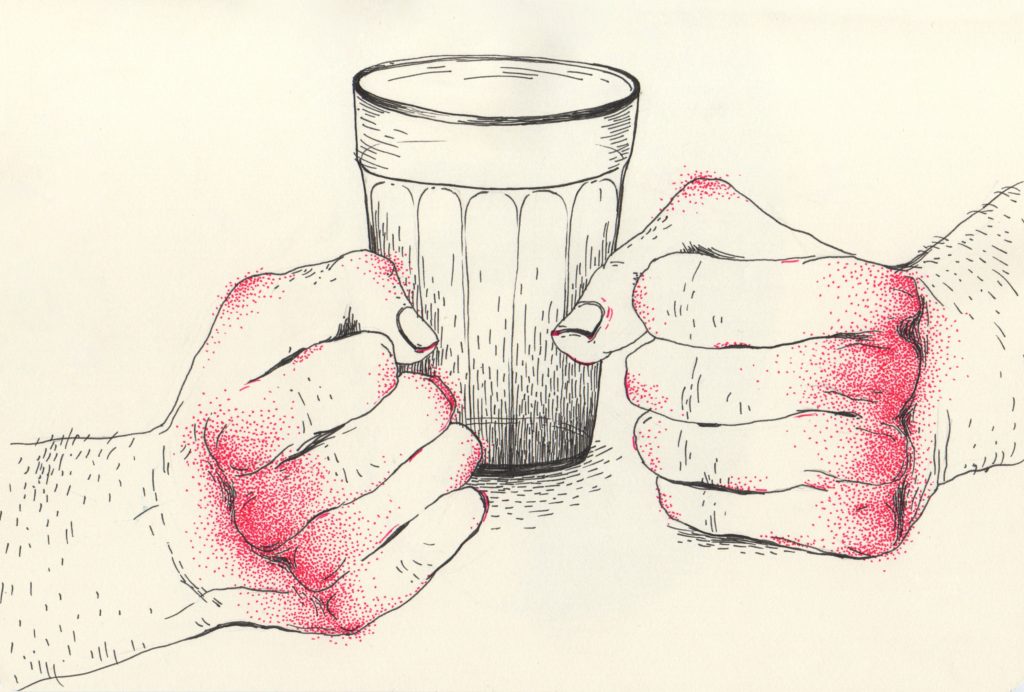I arrived in Drochia on an August morning. The air was still cold and fresh like a leaf of aloe. I went down to the train station and started walking to the only center in Moldova that advises those who were aggressing their family members. At 10:00, I was going to meet with Ruslan, a 33-year-old man who was sentenced to two years of imprisonment because he hit his wife.
Ruslan is waiting for me in front of the center. Gray tracksuit, an assorted cap, unshaven face, brown eyes, calm eyesight. I put out my hand for a handshake. After a moment of hesitation, he shook the hand with me. We went in together to the Center’s meeting room and sat face to face on two green, upholstered seats. Ruslan put together his hands and lowered his gaze, waiting for the questions as a sentence. I looked friendly, trying to lower the tension.
***
Ruslan is from a small village in Râşcani district. He grew up without a father and always knew he had to help his mother alone. That is why, at age 15, he left school and started to work in construction. He tells me all this with half of the mouth opened, he answers concisely and cautiously. I change the tactics and ask about his wife. “She’s a normal wife”, he says briefly. I ask him to tell me how they met, and then, for the first time, Ruslan smiles. “We met in Sankt-Petersburg. We both worked there and liked each other.”
Alina was selling in a grocery store, Ruslan was working nearby. For a lunch break, he went to buy something, he did not remember what. “I started talking to her and got her to a date”, she says in a low voice. They walked through the Palace Square, beside the imposing building of the Hermitage Museum and the Summer Garden. Soon they moved together. “It was easy because it’s good.” It was also the most romantic period of their relationship – sometimes when she came from work, Ruslan brought Alina chocolate candy, flowers or fluffy toys.
Two years later, they did not find work in Russia and returned to Moldova. “It was a decision taken together. I was young and no one wanted to get separated.” At home, they married at the Civil Status Office in the presence of their family and friends. I ask Ruslan how Alina was on that day. “Well, she was beautiful. She was happy”, he says plainly to me. After three years, the couple already had two daughters and the promise of a future together.
***
Ruslan hit his wife after 12 years of marriage and a night of fishing with friends. He had drunk for hours and could not think clearly. He entered the gate before dawn. The girls were sleeping in their rooms, the house was full of silence. Coming from the bedroom, Alina condemned the man for being drunk. From this moment on, the thread of the story breaks. Ruslan knows that there has been a quarrel between them and, under the influence of the strong drinks he has consumed, he has hit her several times. “I think I drank too much. We argued… maybe it seemed to me something”, he says suspiciously, shrugging his forehead. “I hit her a couple of times, but not hard-hard. It was not terrible”, he repeats defensively. In the morning, Alina went to the police station and filed a complaint. Physicians have classified Alina’s injuries as average, and a criminal case has been filed against Ruslan.
“If the injuries were insignificant, then it would have been a contravention. In the case of more serious prejudice, the offense falls under Article 201 of the Criminal Code”, explains Andrei Odajiu, lawyer and counselor of the Counseling and Assistance Center for Family Aggressors in Drochia.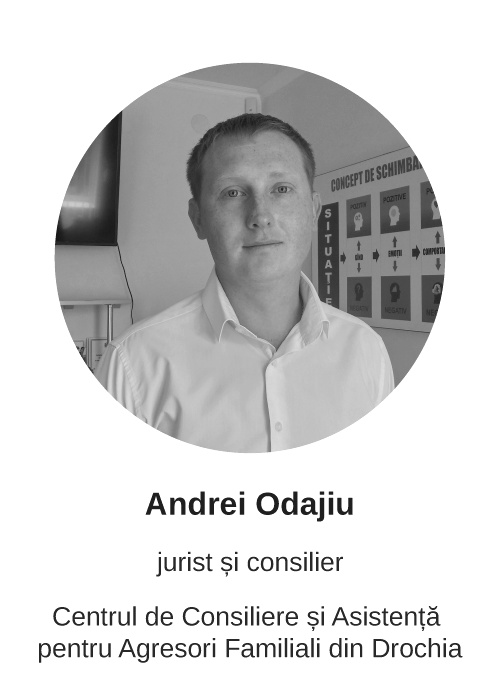
In this trial, the forensic report confirming Alina’s injuries made hard proof. Therefore, Ruslan was sentenced to two years of imprisonment. The court ruled Ruslan to attend counseling sessions at the Center for Families Aggressors for four months. “If a man once again applies violence, the penalty changes in real terms, besides the crime he is committing”, added the lawyer.
The family of Ruslan and Alina is not the only one in which domestic abuse has occurred. During the year 2016, at least 1782 cases of domestic violence occurred in Moldova, according to the General Police Inspectorate. These include 31 killings, 88 serious body injuries and five suicide determinations. In 93% of all cases, the aggressors are men.
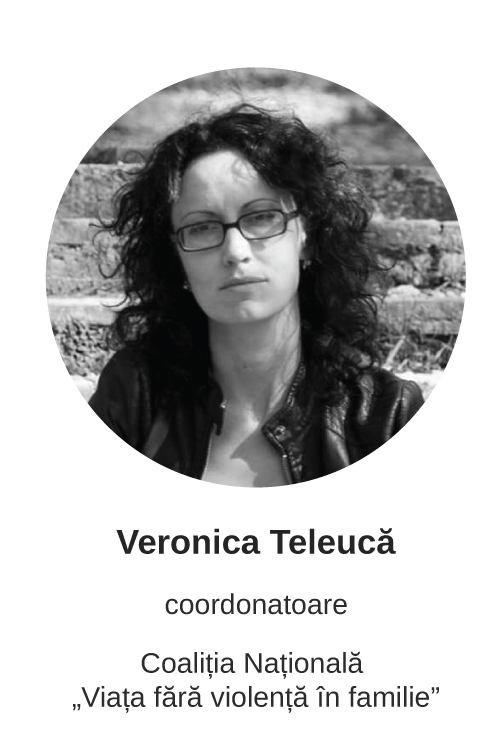 Gender inequality is the basis for domestic violence, says Veronica Teleuca, Coordinator of the National Coalition “Life without Family Violence”. “Mentality is the problem, a problem that has its roots in the traditional Romanian family or even further back when the family had predefined roles. The most interesting thing is that the model has largely been preserved until today”, says the expert. A report released by the Women’s Rights Center at the end of 2015 shows that 90.5% of men believe that the most important thing for a woman is to take care of the house and cook for her family. At the same time, four out of ten men claim there are times when a woman must be beaten.
Gender inequality is the basis for domestic violence, says Veronica Teleuca, Coordinator of the National Coalition “Life without Family Violence”. “Mentality is the problem, a problem that has its roots in the traditional Romanian family or even further back when the family had predefined roles. The most interesting thing is that the model has largely been preserved until today”, says the expert. A report released by the Women’s Rights Center at the end of 2015 shows that 90.5% of men believe that the most important thing for a woman is to take care of the house and cook for her family. At the same time, four out of ten men claim there are times when a woman must be beaten.
How do you explain the aggressiveness of men? Ethologist Dorian Furtuna, specialized in social instinct research, offers some answers in his book “Homo Aggresivus”. First of all, male individuals have a genetic predisposition to manifest themselves more aggressively. Their warlike character is reflected by their own anatomy – men are taller, have bigger lungs, thicker skin, harder skeleton. But genes are not, of course, the only ones that mark our behavior. “The rest of the influence lies in social, environmental and educational circumstances”, writes Dorian Furtuna.
The main causes of domestic violence are alcohol consumption, jealousy, infidelity, unemployment, and the inability to solve conflicts amicably, which generates frustration and aggression.
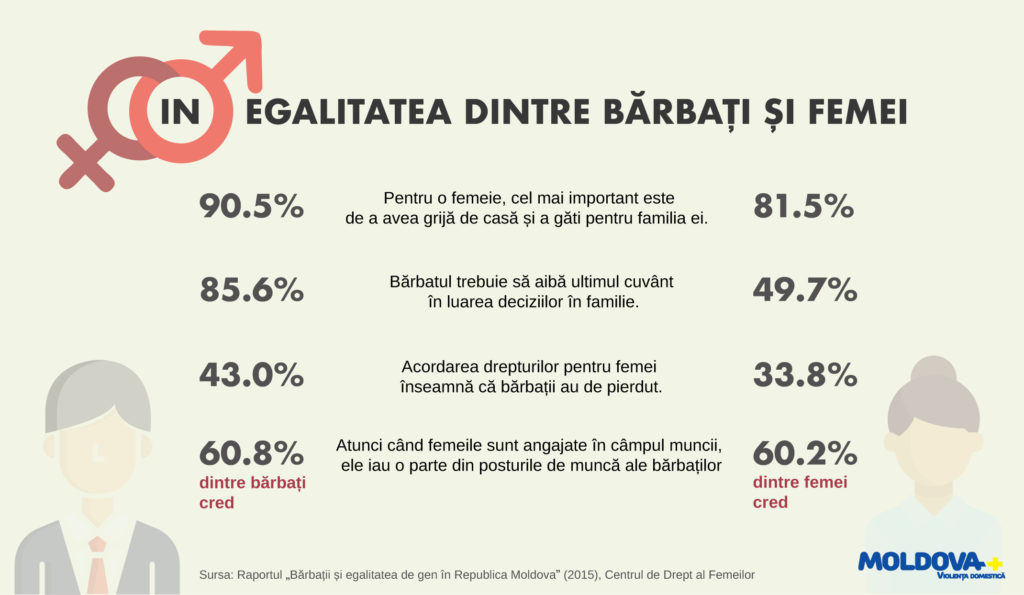
When he heard his verdict, Ruslan was angry. “At first, it seemed to me that I was right… I was accustomed to never giving up. In our society, the man must be a man”, he says firmly. Councilor Andrei Odajiu says this is a classic reaction of the family aggressor. “They immediately blame the victim and when we say that woman and man have equal rights, they say the world has gone in the wrong direction”, says the specialist.
Ruslan has been to the Center for Family Aggressors for three months now. Here he learned that domestic violence does not just mean the physical assault of a family member. Insult, marital rape, financial restrictions are similar forms of violence. Asked if he had abused his wife, Ruslan denies it. “No, just that case… maybe I used psychological violence”, he added hesitantly.
The aggressors rarely tell what they did. “They come to us very reserved, some are ashamed”, explains Andrei Odajiu. Moreover, they see that the information they gave the police, the court – all turned against them. “They are forming this barrier. We create a friendly atmosphere here and gradually they open up.” For example, at the first session, an aggressor can say that “only” has slapped his wife, and in two months, to recognize that he has hit with his feet.
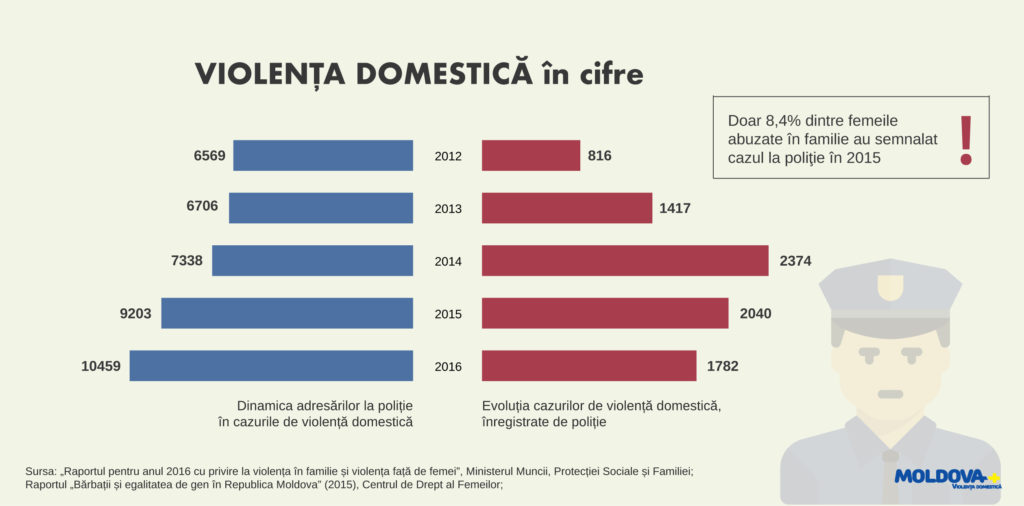
During counseling sessions, family aggressors speak with the Center’s lawyers and psychologists. Specialists explain what rights family members have, what laws they protect, why they have been punished for the acts they have committed. At these meetings, experts also help aggressors understand what their anger rages and how to control their emotions. “The meetings are very practical – we present them different situations of conflict, which we solve together”, says Andrei Odajiu.
The Drochia Counseling Center, founded in 2012, operates based on a program developed in Duluth, Minnesota, and its specialists have been trained by US advisers.
Meetings take place in groups and participants are at different stages of the course. This is no accident at all. “They see me as a specialist who does his work, but among them, credibility is greater. When an aggressor who has been here for five months tells a newcomer: I was like you and I lost my family, I can go to prison, they understand that what we teach here is true”, Odajiu continues.
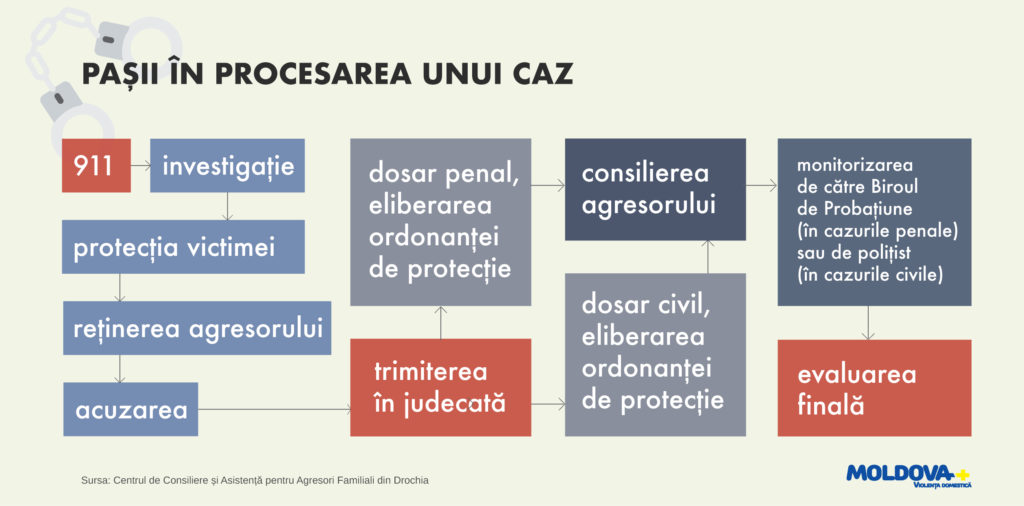
Currently, the Drochia Center is the only one in the country to provide counseling services to family aggressors. Out of the hundreds of abusers convicted annually, only 40 go to counseling courses. The National Strategy for Preventing and Combating Violence against Women and Family Violence for the period 2018-2023 stipulates the development of social services for family aggressors but does not specify how many centers are to be opened in the country.
According to councilor Andrei Odajiu, Ruslan has changed a lot and the family has received him back. Now, if there is any conflict between the husband and the wife, the man no longer resorts to violence. “I do not hit her, I do not shout. We talk calmly or I’m looking for my business”, says Ruslan.
When he goes fishing with his friends, he tells them not to blame their partners. At first, friends laughed at him, thinking he was going to a psychiatrist, but Ruslan explained the difference: “I told them better not to do it, they will not get away. They did not fight, but they said ugly words to each other.”
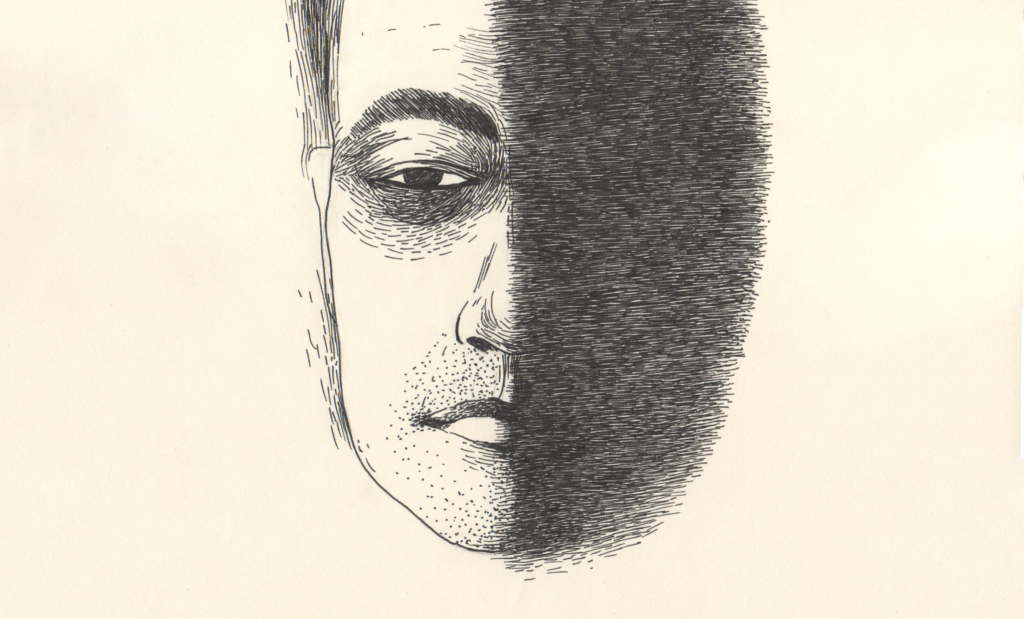
At the end of the discussion, I asked Ruslan if a woman must, however, tolerate violence. After a few moments of hesitation, he said to me that he understood that he was wrong: “Sometimes”. I encouraged him to imagine the scenario where one of his daughters receives a slap, one slap, from her future husband. “No, she should not be… it’s my daughter”, he replied immediately. Every woman is one’s daughter, I told him. “Then we realize, then… we wake up”. the man added.
Ruslan says he will never be aggressive to his wife. “If I hit her, I will lose it… but I do not see myself in another family.”
Note: The names of the persons were modified to protect their identity.
The original story in Romanian.


